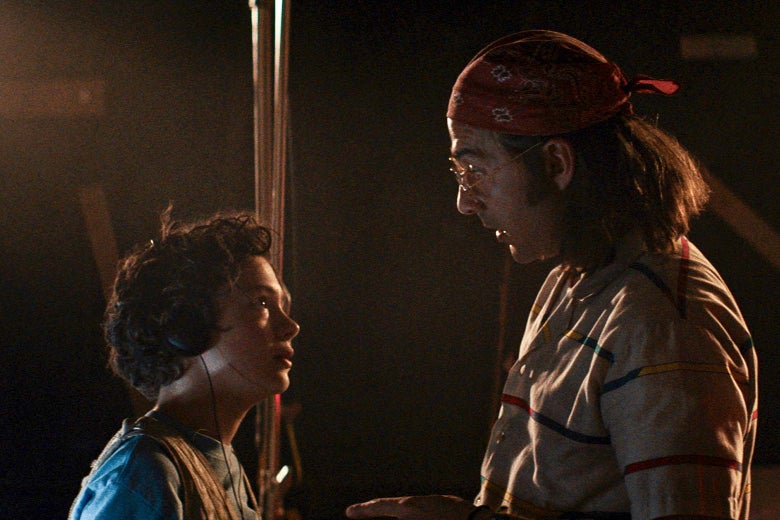
“The only thing my father gave me of any value was pain. And you want to take that away?”
The concept of children being liable for the sins of their fathers can be traced as far back as the Bible. While the religious text does state that in terms of legality, the crimes of fathers cannot lead to punishment for their sons, it also states that the actions fathers take in terms of religious tenets, positive or negative, do have ramifications on their progeny as fathers are considered to be representative of their descendants. The mistakes one makes can have consequences down their genetic line for generations to come if said mistakes are never addressed. Generational trauma is widely accepted to be passed down through behaviors and growing research suggests that perhaps it can even be transferred through genetics.
This concept serves as the basis for the screenwriting debut of actor Shia LaBeouf in Honey Boy, a semi-autobiographical look at the relationship between LaBeouf and his father during his child acting days directed by Alma Har’el and inspired during a court-order stay in rehab for LaBeouf. He has struggled with addiction issues and run-ins with the law and this film explores the impetus for those struggles, namely his shaky relationship with his father (played by LaBeouf himself in the film as “James Lort”) and his father’s struggles with alcoholism. Otis Lort is the pseudonym for LaBeouf in Honey Boy and he is portrayed powerfully by Noah Jupe during childhood and as an adult by Lucas Hedges. The chemistry between LaBeouf and Jupe allows for the toxicity of their father-son relationship to be shown in stark terms that feel as real as possible and strikingly impart the negative influence and impact that James’ struggles have on Otis’ mental state. In addition to James’ personal struggles, Otis often times finds himself stuck in the middle of his parents’ poor relationship as ex-spouses, a point driven home excellently by Har’el in a scene where Otis literally acts as the messenger during a telephone argument between his mother and father. During the film we also find that James’ struggles with alcoholism are inherited as well from a mother and stepmother that abused him, leading James to choose a path that led him to the same substance issues that are also fracturing his relationship with his own child. LaBeouf is magnificent during this revelatory scene held during an Alcoholics Anonymous meeting as he is throughout the film, offering a transformative, emotionally resonant performance that should add his name to the already long list of Best Supporting Actor contenders over the coming months. The audience is simultaneously disgusted with James’ treatment of his son, but at the same time sympathetic to the childhood experiences that were out of his control which led him to become this person, a testament to the writing and acting of LaBeouf.
Interspersed with the scenes of young Otis and his upbringing while working as a child actor are scenes of adult Otis dealing with the end result of his tumultuous development by way of inpatient rehabilitation. It is here where we see the generational curse passed on and how Otis has turned into the very monster that created him. Otis struggles to confront the demon of his past that led him to where he is, partly out of the natural hesitation of most to confront painful pasts, but also partly it seems out of conflicted feelings for the man who helped to raise him and turn him into a success as an actor. This internal conflict mirrors what many who suffer from trauma originating from the hands of loved ones struggle with; reconciling that love and longing for familial connection with confronting someone that needs it. But as we see, adult Otis takes steps while in rehab to break the generational curse of the Lort family, which is the first step toward progress.
Honey Boy also touches on the role that working as a child actor has on Otis’ life and his relationship with his father. Har’el’s directorial choice in opening the film with depictions of Otis’ time on set both as a child and adult, first engaging in destructive behavior involving substance use and emotional outbursts, then traveling backward through time and showing Otis witnessing the same behavior from his father as a child while onset really emphasize the film’s theme about generational trauma and how it’s transferred. References to Otis’ income from acting and how it directly provides a salary for his felon father who doesn’t have many employment options otherwise, and the silent resentment it creates for both father and son is an added wrinkle that effectively displayed the many layers and complexities that comprised the relationship. Honey Boy is a well-paced, emotionally powerful film that features an excellent performance from Shia LaBeouf and quality direction from Alma Har’el that is worth the price of admission.
Image: Amazon Studios

